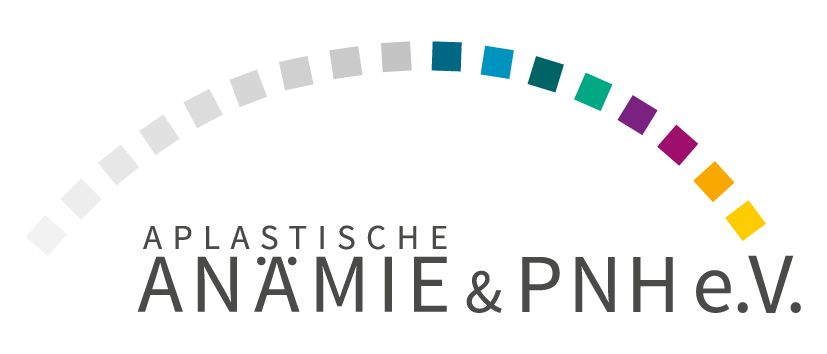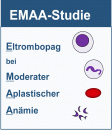Approval of pegcetacoplan for PNH patients

On 13 December 2021 a new drug for the treatment of adult patients with PNH was approved in the EU: The substance pegcetacoplan which inhibits specific processes in the immune system will probably be available in Germany in the beginning of 2022. Its trade name is Aspaveli®.
The drug is a so-called C3 complement inhibitor: The complement system is part of the body's own immune system which in PNH attacks the red blood cells (erythrocytes) and destroys them. Pegcetacoplan inhibits a certain part of the complement system and thereby the destruction of red blood cells outside the blood vessels (extravascular), leading to an improved life cycle of the erythrocytes and improved haemoglobin levels.
Pegecetacoplan is approved for patients who remain anaemic despite treatment with a C5 inhibitor (eculizumab or ravulizumab) for at least 3 months. C5 is also part of the complement system. The drug is administered twice a week as a subcutaneous infusion. Among the most common side effects are reactions at the injection site, infections of the upper respiratory tract, headache, abdominal pain, and diarrhoea.
"Summary of product characteristics" by the European Medicines Agency EMA.
The drug is not entirely new: On 5 April of this year, we already reported in detail on the mechanism of action and the current studies on it in a blog post on our website.


 Adult patients with acquired moderate Aplastic Anaemia (mAA) who have not received a specific treatment for their mAA may be included in the EMAA trial of Ulm University (Eltrombopag in Moderate Aplastic Anaemia). They receive either ciclosporin and eltrombopag or ciclosporin and a placebo. The aim of the trial is to evaluate the efficacy and safety of the combination therapy of ciclosporin and eltrombopag. Patients with or without prior transfusions can be included.
Adult patients with acquired moderate Aplastic Anaemia (mAA) who have not received a specific treatment for their mAA may be included in the EMAA trial of Ulm University (Eltrombopag in Moderate Aplastic Anaemia). They receive either ciclosporin and eltrombopag or ciclosporin and a placebo. The aim of the trial is to evaluate the efficacy and safety of the combination therapy of ciclosporin and eltrombopag. Patients with or without prior transfusions can be included.